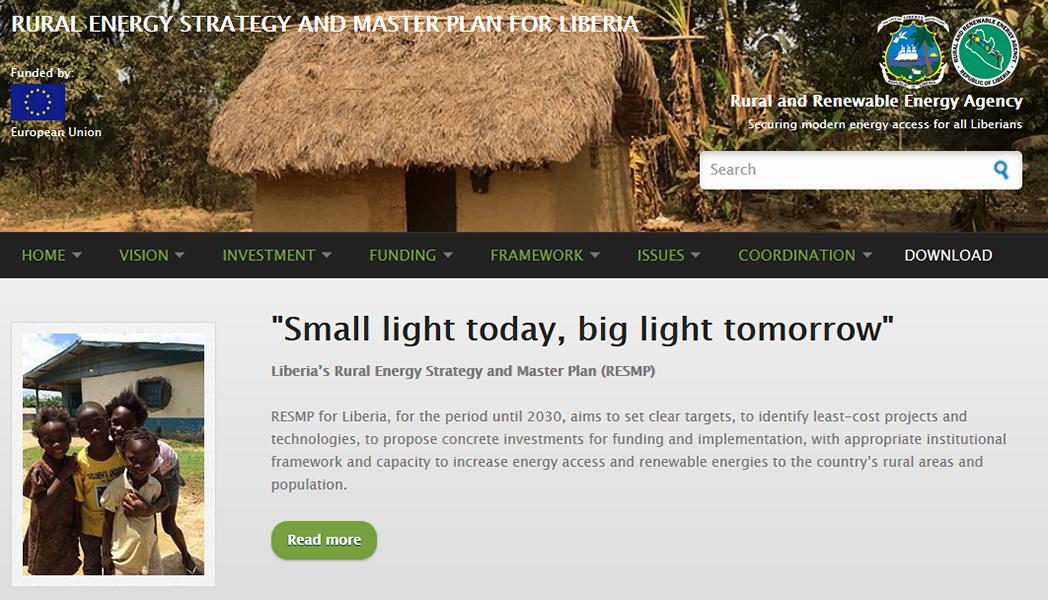
In 2016, the Rural Energy Strategy and Master Plan For Liberia was presented and published under http://liberiaruralenergy.org. It includes targets for the period until 2030:
- Electrification rate for the population outside of Monrovia of 10% in 2020, 20% in 2025 and 35% in 2030
- All county capitals, health facility, and secondary schools electrified already before 2025
- More than 75% of all electricity generated from renewables by 2030 with 19% coming from other than large hydro: mini-hydro, solar and biomass
- Universal access to affordable solar lamps, efficient appliances and cookstoves
All national policies, strategies and plans have to be seen in a broader framework. Liberia has a Vision (“Liberia RISING 2030”) aiming for Liberia to become a Middle Income Country by the year 2030. This vision includes and proposes the targets of 70% of Monrovia to be connected to the electricity grid and 35% of the rural areas of Liberia connected to mini-grids/isolated, stand-alone units by 2030.
The Government, through the Ministry of Lands, Mines and Energy (MLME) adopted its energy strategy and relevant targets (access, capacity, generation, energy security) in the National Energy Policy for Liberia (NEPL) in May 2009; an Agenda for Action and Economic and Social Development was prepared with the technical and financial assistance from USAID.
The principal objective of the National Energy Policy is to ensure universal access to modern energy services in an affordable, sustainable and environmentally-friendly manner in order to foster the economic, political, and social development of Liberia. This is to be achieved by good governance and ensuring financial transparency in all sector transactions. The goal is to overcome the significant obstacles to private sector investment in energy supply, and to create the requisite institutional and legal framework, and an independent regulatory regime.
Liberia is committed to making progress with the United Nations (UN) Sustainable Energy for all (SE4ALL) Initiative, the Millennium Development Goals (MDGs) and the Sustainable Development Goals (SDGs). The commitment of the Liberian government to SE4ALL Action Agenda has been developed with the backdrop of the country’s overall development objectives of the Poverty Reduction Strategy (PRS), the national Agenda for Transformation (AfT) objectives, the National Energy Policy of Liberia (NEPL) and achievement of the MDGs, SDGs and the SE4ALL objectives in Liberia.
As a member state of ECOWAS, Liberia subscribed and participated in the adoption of the ECOWAS policies on Renewable Energy and Energy Efficiency (RE&EE) to be implemented at the national level.
The Poverty Reduction Strategy and the follow-up Agenda for Transformation (the first five years on the road towards the Vision “Liberia Rising 2030”) strive to consolidate peace and security and revitalize the economy. These plans also strengthen governance and the rule of law, rehabilitate infrastructure and deliver basic services. The Agenda for Transformation (AfT) recognizes that investments in energy to unlock the urban and rural economies have the greatest return on investments and should be prioritized by expanding electricity access throughout the country.